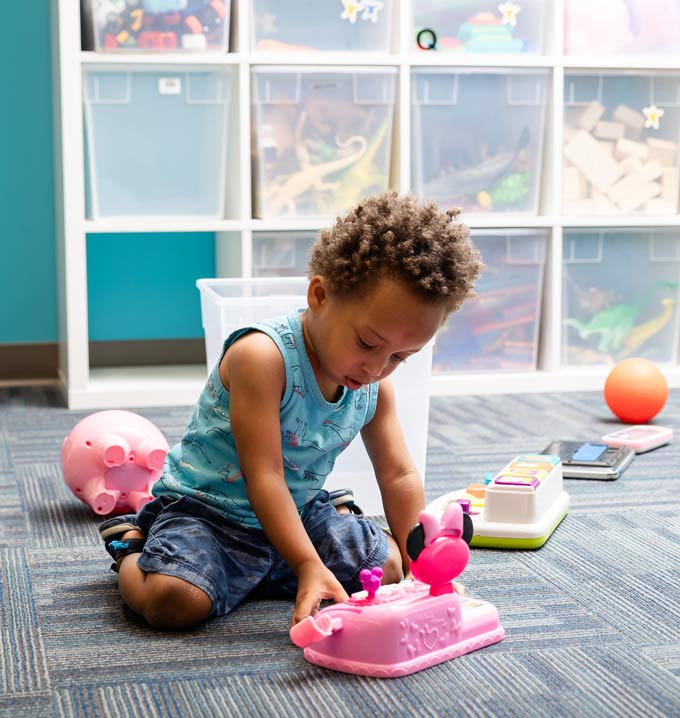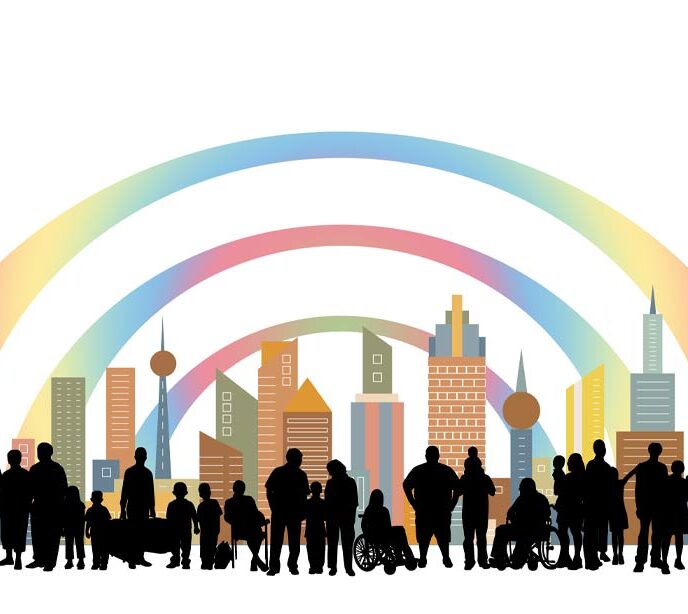Early Signs of Autism in Children
We take a look at some of the signs of autism that parents can look out for in their babies and toddlers. We also cover the importance of early intervention.
What Are Some of the Signs of Autism Caregivers Should Look For?
Autistic children usually display signs and symptoms from early infancy but aren’t diagnosed until they are much older. Early autism spectrum signs often go unnoticed purely because caregivers or parents don’t know what to look out for.

Learning the early signs of autism is imperative for your child. Earlier diagnosis and autism intervention will give them the best possible start and equip them with the tools for an independent life.
So, what are signs of autism in early childhood? Let’s take a look at some of the signs of autism that parents should keep an eye out for in their child.
Characteristics of autism in young children
Social communication challenges and repetitive or restrictive behaviors are some of the key signs of autism in children. These can be more difficult to recognize in babies or young toddlers, but they are more noticeable in older autistic children.
Developmental milestones offer essential insight into your child’s development. Although every child develops at their own rate, it’s important to keep them in mind, as missed milestones could indicate autism. Skills such as crawling, walking, smiling, waving, and saying their first word are just a few of the important milestones to watch out for.
Signs of autism in babies
It’s particularly difficult to recognize signs of autism, and other tells in early infancy, as every baby develops at their own pace. However, it is possible to start noticing delays in specific skills and it’s essential to know what signs to be aware of in babies to get an early autism diagnosis.
These are the most common signs of autism in babies under the age of 24 months:
- Dislike being held or touched
- Overly sensitive to loud noises
- Not following moving objects with their eyes
- Not responding to their name
- Poor facial recognition
- Very little to no babbling or baby noises
- Limited facial expressions, such as smiling
- Limited ability to grasp onto objects
- Not making eye contact
- Limited ability to crawl
- May not point or gesture to objects or people
- May not use gestures like waving or shaking their head to communicate what they want
Signs of autism in toddlers
It becomes easier to recognize the signs of autism when babies become toddlers, as developmental milestones are more obvious as children learn to walk, talk and play with others. Nonverbal autism signs are vastly more recognizable in toddlers than in babies.
Autistic children will usually display the following behaviors:
- Not speak at all or use a limited vocabulary of words, gestures, and sounds
- Repeated noises such as throat clearing, grunting, or squealing
- Show an interest with or fixation on one particular subject or activity
- Show repetitive movements (i.e., stimming), such as body-rocking, hand-flapping, or spinning
- Prefer to play on their own or show little interest in engaging or playing with other children
- Difficulty making friends with children their own age
- Difficulty understanding other people’s feelings and thoughts
- Difficulty walking or walking only on their toes
- Difficulty understanding group interactions and dynamics
- Adhering to their own daily routines with extreme rigidity
The importance of an early diagnosis
The importance of early diagnosis in autistic children cannot be understated. If you recognize the signs of autism in your baby or toddler, then it’s essential to make an appointment with a medical professional for a diagnosis.
Early intervention treatments, such as the Lighthouse Fusion ABA Therapy, are key to helping autistic children develop critical skills and equipping them with the tools they will need to gain independence and improve the overall quality of their lives going forward.
The sooner you are able to get your autistic child diagnosed, the sooner you are able to get the resources that will help unlock their true potential and to achieve more than you imagined was possible.
Our brains develop rapidly and are most easily shaped in the first seven years of life. Early intervention means that we can have a positive impact on your child’s most fundamental skills, such as communication and speech development at key developmental milestones. This often means that there are fewer interventions needed later on in life, and autistic children are better prepared for life ahead. It has far-reaching positive implications for essential facets of their future, such as social and emotional skills, financial management, and maintaining relationships with friends and family.
What is Lighthouse Fusion ABA Therapy?
Most autism centers use ABA (Applied Behavior Analysis) therapy for treating autistic children, keeping speech therapy as a separate entity. At Lighthouse, we offer a unique approach to ABA therapy, which combines ABA therapy and speech therapy into a single innovative approach.
Lighthouse Fusion ABA Therapy has better outcomes than traditional ABA therapy, and we note that children respond to the approach faster too. Our Fusion approach isn’t just more effective, our learners achieve all of this while having fun.
Get the best start for your child with Lighthouse Autism Center
It’s important to remember that every autistic child is unique, and their needs will depend on their individual development. LAC’s innovative approach to early intervention offers tailored strategies for every child’s requirements. Our one-of-a-kind Lighthouse Fusion ABA Therapy, combined with our large archive of autism resources, put us in the perfect position to understand your child’s needs and to best equip them for a positive future.
Together, we can unlock your child’s potential
Related News

06/11/2025
Overcoming Stereotypes
Autism stereotypes are common and can have significant social consequences for autistic children. Misconceptions hinder the acceptance and inclusion of autistic children. Challenging these stereotypes is vital for creating a more understanding and supportive society. Challenging Common Autism Stereotypes When people hear the word “autism,” they often imagine a narrow set of images, like the […]

06/11/2025
What’s Next After ABA Therapy?
There are a number of reasons why an autistic child might stop ABA therapy, and one is that they have reached their goals. In this article, we take a look at what parents can expect going forward. What Are the Next Steps After ABA Therapy? As a parent, you only want what’s best for your […]

06/11/2025
Do Babies with Autism Smile?
We take a look at the importance of early intervention, some of the milestones for parents to look out for, and the more common signs of autism in babies. Do Babies with Autism Smile? Watching your baby grow is an exciting time, certainly one of life’s quiet wonders. From those first sleepy stretches to the […]


